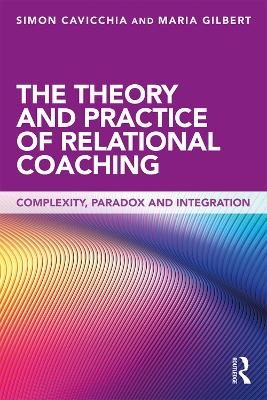
The Theory and Practice of Relational Coaching
Routledge (Verlag)
978-0-415-64325-2 (ISBN)
In The Theory and Practice of Relational Coaching: Complexity, Paradox and Integration, Simon Cavicchia and Maria Gilbert expand existing coaching theory and practice to focus on the implications of the relational turn for how coaches and clients think about the nature of identity, the self, change, learning, and individual and organisational development. Drawing on perspectives as varied as relational neuroscience, the relational foundations of personality development, psychoanalysis, psychotherapy, shame, vulnerability, complexity and systems ideas, the authors shed light on many of the paradoxes and challenges facing coaches and their clients in today’s fast-paced, volatile and uncertain organisational environments. These include holding tensions such as the uniqueness of individual needs with the requirements of organisational contexts, managing multiple stakeholder expectations and networks and balancing linear approaches to change with adjusting to emerging and unpredictable events.
Given the ever-increasing volatility, complexity and uncertainty that coaches and their clients face, The Theory and Practice of Relational Coaching guides the reader through a series of illuminating perspectives, examples and practical suggestions. These will enable coaches to integrate a more relational orientation in their work and extend their range and that of their clients for responding creatively to the challenges of modern organisational life. The book will appeal to coaches and coaching psychologists in practice and training, as well as counsellors and psychotherapists retraining as coaches.
Simon Cavicchia is an executive coach, a UKCP registered Gestalt psychotherapist, consultant and supervisor. He was Joint Programme Leader of the MSc in Coaching Psychology at the Metanoia Institute in London for eight years. He divides his time between executive coaching, consulting and teaching on postgraduate programmes in coaching and organisational development. He is currently on the faculty of the Ashridge Masters in Executive Coaching. Maria Gilbert is a Chartered Clinical Psychologist, a UKCP registered Integrative psychotherapist, BACP accredited supervisor and coach. For many years, she was the Joint Head of the Integrative Department, the Supervision Training and the MSc in Coaching Psychology at the Metanoia Institute in London, and a Visiting Professor at Middlesex University.
SECTION 1 The relational turn and coaching
1 Setting the scene for an integrative relational approach to coaching in challenging times – uncertainty, paradox and complexity
2 Who is it who is in a coaching relationship?
3 Relational coaching and change – two distinct and interrelated approaches to change
4 Selves in context – navigating and negotiating organisational life
SECTION 2 Practice perspectives
5 Coming together – unpacking the coach-coachee-context constellation
6 Intersubjectivity 1 – understanding relationship dynamics from a developmental perspective
7 Intersubjectivity 2 – the co-creation of the coaching relationship, meaning and change
8 Relational integration – implications for practice
SECTION 3 Applications
9 Shame and vulnerability – the experiences that dare not speak their name
10 Perspectives on contracting from a relational perspective
11 Coaching in organisations – culture, norms and novelty
12 Feedback and assessment
Concluding thoughts: Relational perspectives on the development of coaches, ethics and supervision
| Erscheinungsdatum | 11.09.2018 |
|---|---|
| Zusatzinfo | 3 Tables, black and white; 7 Halftones, black and white |
| Verlagsort | London |
| Sprache | englisch |
| Maße | 156 x 234 mm |
| Gewicht | 380 g |
| Themenwelt | Geisteswissenschaften ► Psychologie ► Allgemeine Psychologie |
| Geisteswissenschaften ► Psychologie ► Arbeits- und Organisationspsychologie | |
| Medizin / Pharmazie ► Medizinische Fachgebiete ► Psychiatrie / Psychotherapie | |
| Sozialwissenschaften ► Pädagogik ► Sozialpädagogik | |
| Sozialwissenschaften ► Soziologie | |
| ISBN-10 | 0-415-64325-2 / 0415643252 |
| ISBN-13 | 978-0-415-64325-2 / 9780415643252 |
| Zustand | Neuware |
| Haben Sie eine Frage zum Produkt? |
aus dem Bereich


